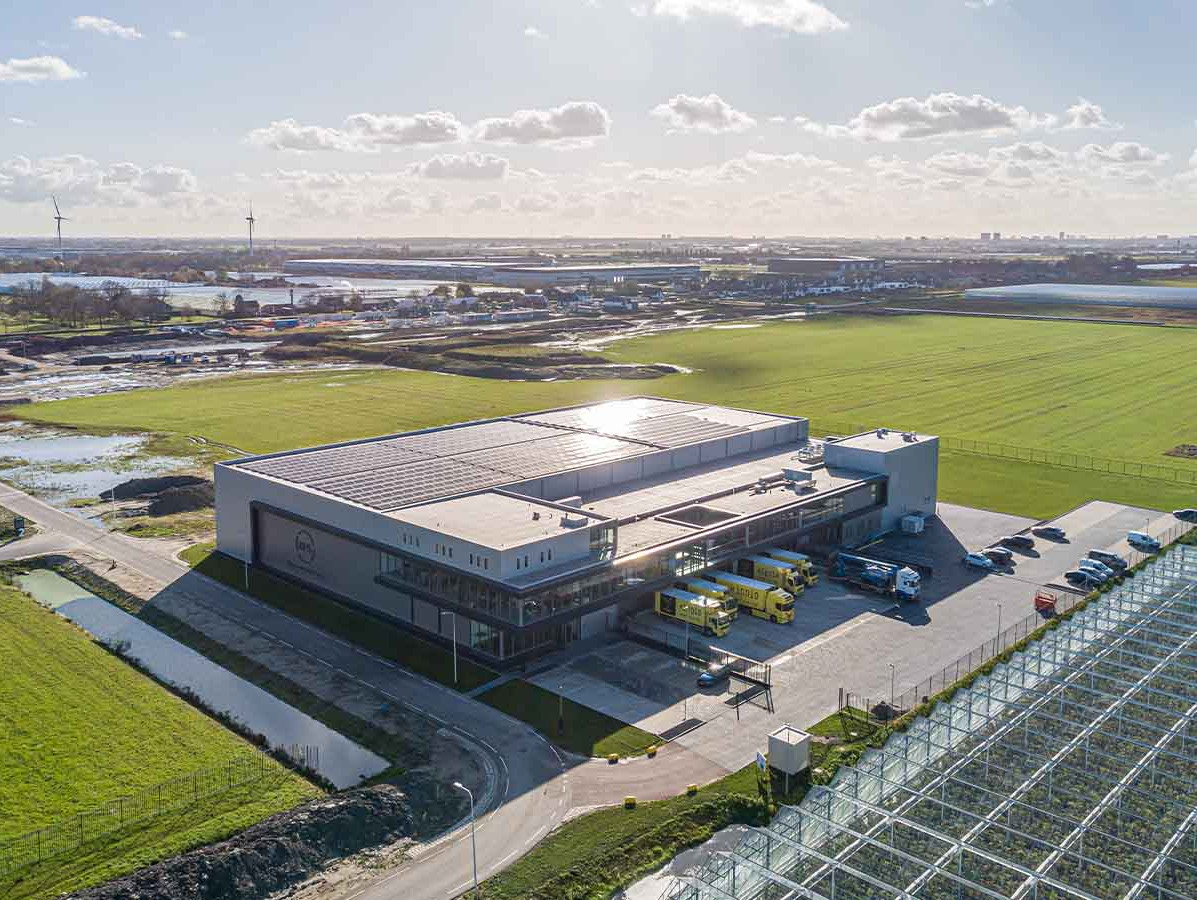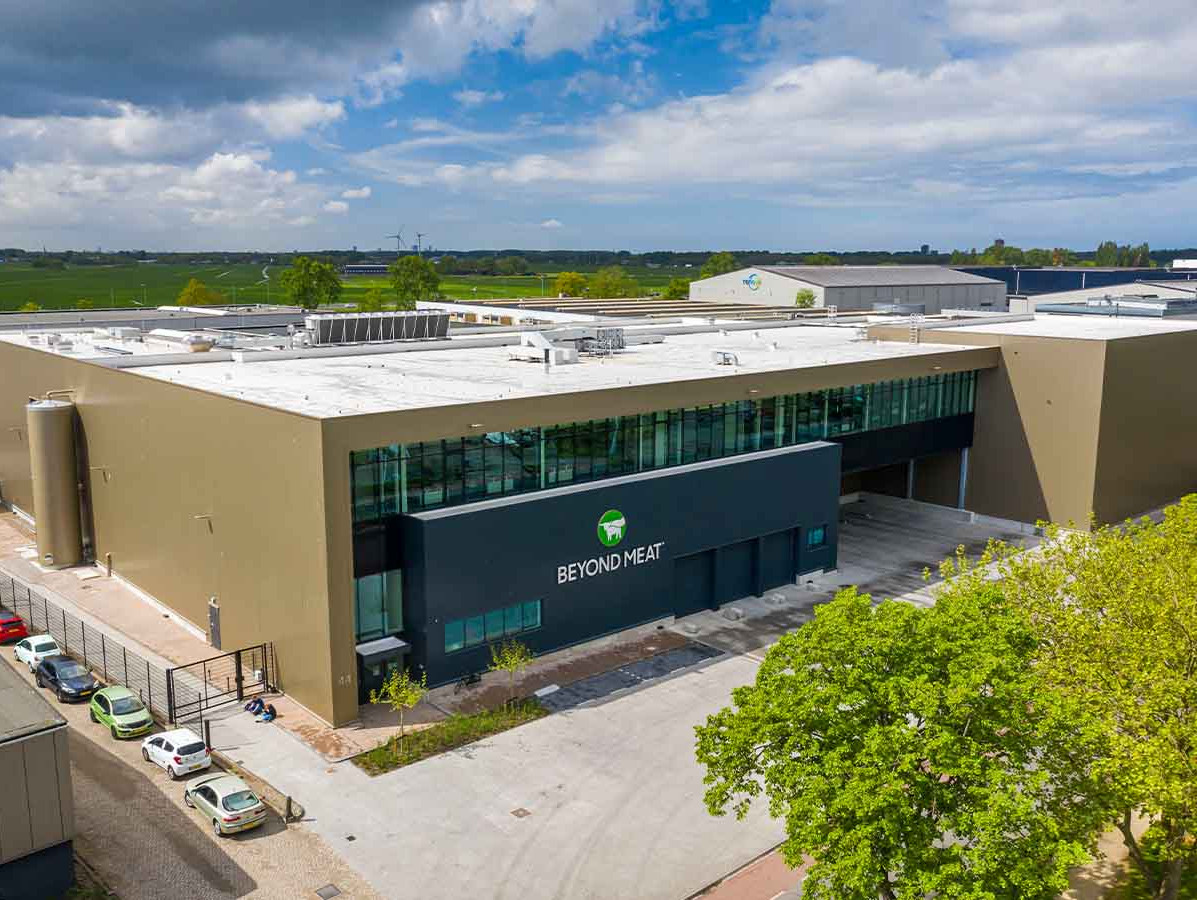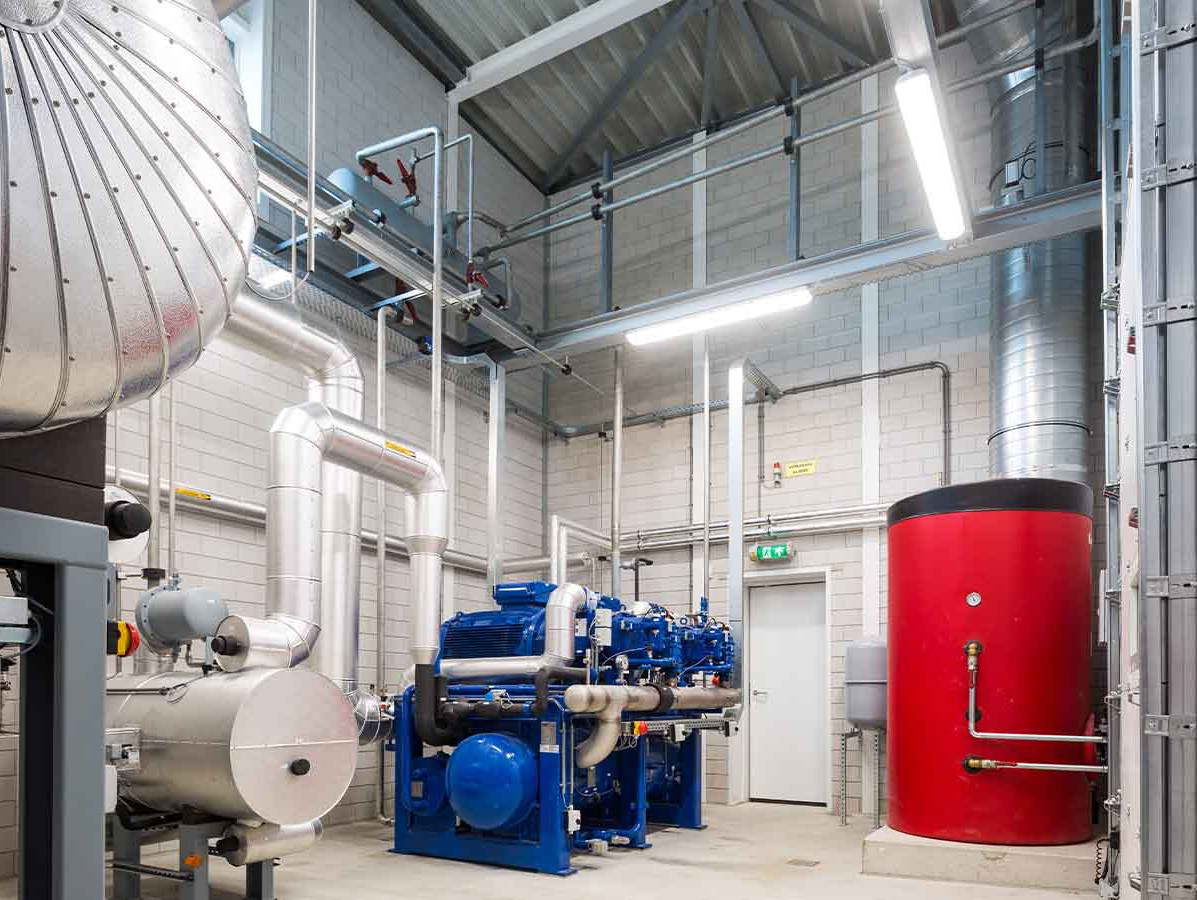
The food industry faces substantial challenges in 2024. Economic conditions and climate change compel companies to undergo transformation. The key to saving resources, energy, and money lies in sustainable, efficient buildings and smart production systems. Engineering firm RBK Food Projects aims to be the driving force behind this transformation.
"We aim to design buildings that operate efficiently throughout their entire lifecycle, from planning to demolition," says Theo Vliek, Commercial Director at RBK Group, an engineering firm with 45 years of expertise in planning, construction, and automation of slaughterhouses, production plants, frozen storage and cold storage facilities within the food industry. "Our underlying goal is to enhance the competitive position of our clients. Our approach? Integrated design and smart automation! Placing the building in service of the process, not the other way around. It's not just about energy efficiency and savings; health, economic, and ecological aspects also play a significant role."
"We initiate with the logistical concept, even before the building design. We maximize every square meter to create an optimal logistics flow," explains Theo. "Efficient routing and well thought-out strategies not only save time and money but also form the basis for substantial CO2 and energy savings." Following a Sustainability Analysis, RBK Food Projects provides the client with a detailed report on current energy consumption and efficiency. "Based on our findings, we present concrete proposals, including energy-saving measures. Alongside, we develop a roadmap for the implementation of our proposals with estimated cost savings and Return on Investment (ROI)."

For The New Plant/Zandbergen, in collaboration with RBK Food Projects, a building has been created that remains ahead of its time, especially in terms of sustainability.
Optimal production logistics go beyond a smooth flow from raw materials to end products. Theo emphasizes, "It's all about integrated production logistics where production and storage facilities seamlessly integrate." RBK Food Projects applied its expertise broadly in projects like The New Plant/Zandbergen, where Beyond Meat is produced, Van Loon Group, Kippie, and Sealane. For these projects, RBK Food Projects deployed its expertise broadly: in logistics and production processes, construction and infrastructure, building installations, as well as refrigeration systems and environmental issues. Optimal results were achieved in each of these projects.
The state-of-the-art facility, The New Plant/Zandbergen, is an intelligent design—an 'all-electric' and gas-free building with high-quality insulation for external walls and roofs. The factory features advanced climate control with low-temperature underfloor heating, heat recovery technologies in air handling, and dynamic pressure regulation for a speed-regulated piston compressor. The central cooling and heating system use carbon dioxide as a natural refrigerant with two temperature levels for cooling and freezing. "With energy efficiency in mind, we opted for LED technology. Smart use of motion sensors optimizes energy consumption by activating lighting only when necessary, resulting not just in direct lighting cost savings but also indirect savings in the cooling system's energy consumption."
The factory roof, adorned with over 1,600 solar panels, serves as an energy generator, producing 528,000 kilowatt-hours in 2022, with 195,000 kilowatt-hours returned to the grid. This solar energy covers about 45 percent of total energy consumption. Smart connections with the cooling system ensure an optimized energy flow, using the freezer cell as a thermal buffer.
"The focus in the energy transition is on heat pumps utilizing renewable energy sources," notes Theo. "Heat recovery systems integral to this building include heating offices, tempering according to formulations, and producing hot water for cleaning purposes. Other measures to increase heat supply include dialing back the gas cooler and activating cooling users through intelligent software control."

FOPRO® also provides intelligent control of cooling systems, as seen here at Sealane.
RBK Group completes the picture, particularly at Kippie and Van Loon Group, by incorporating FOPRO®, software developed to manage fully automated production lines and regulate processes such as drying, cooling, freezing, thawing, blanching, pasteurizing, cooking, and baking. "FOPRO® provides a graphical overview and intelligent control of used installations and machinery, avoiding errors and leading to savings in material, manpower, machine time, and energy."
The combination of alternative power generation and intelligent system control results in significant production cost reduction. "Simply put," says Theo, "when the sun rises, the generated power is used in the cooling and freezing cells. When production starts, all power goes there. Sealane is a great example. The cooled storage spaces act as a buffer. The icing on the cake is the use of FOBIS-ERP and MES software, ensuring flawless operations in tasks like order picking and recipe weighing."
"Those discussing 'sustainability in buildings' should focus more on the entire lifecycle of the building," emphasizes Theo. "Intelligent energy management and sustainable processes go hand in hand. We are ready to guide ambitious food production companies towards that necessary green future."
Caption Main Photo: For Kippie, a future-proof, sustainable, and energy-efficient business facility has been established.
Source: Vakblad Voedingsindustrie 2024